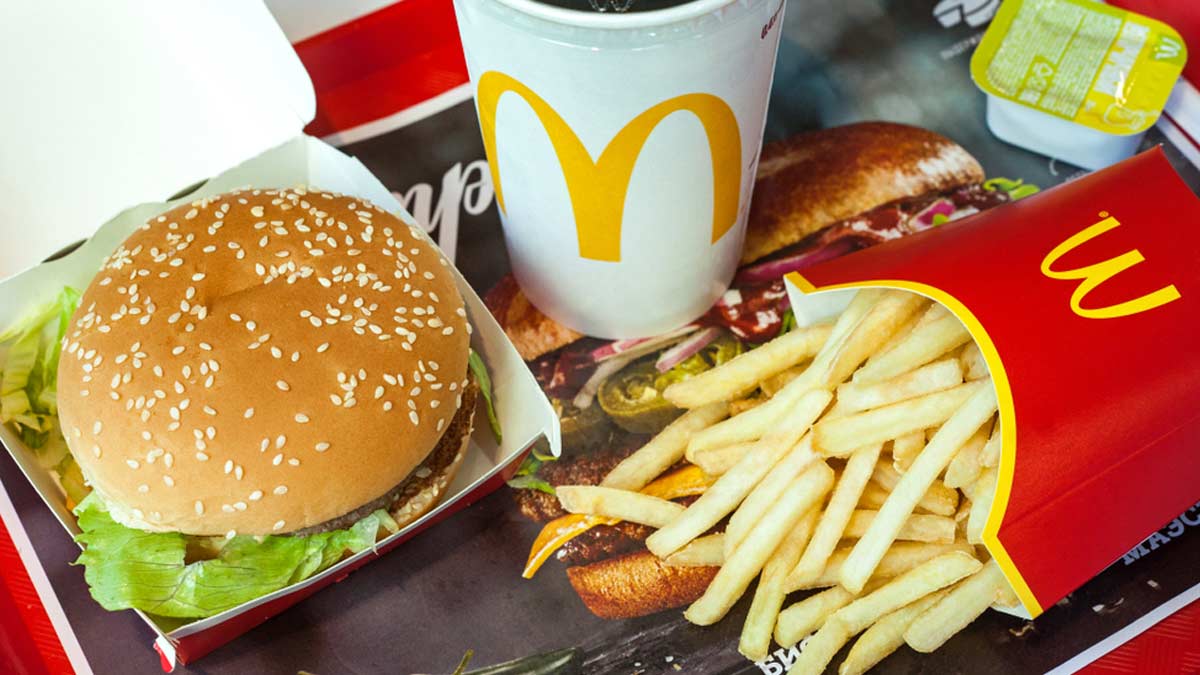
The Food Safety and Drug Administration (FSDA) Department is investigating complaints against McDonald's in Noida Sector 18 after two customers reported falling ill post-consuming food from these establishments. One customer allegedly consumed fries and a burger at McDonald's.
Table of Content:-
In response, the FSDA team visited the McDonald's outlet to collect samples of palm oil, cheese, and mayonnaise after the customer's complaint. Further actions will depend on the laboratory results, which are expected in 15 days to a month.
This is nothing new for McDonald’s, as the food chain has been a point of controversy several times in the past. This news of McDonald’s does raise a question about food safety when consuming outside food.

Consider These Hygiene Concerns Before Enjoying Outside Food
In today's fast-paced world, where convenience often dictates our food choices, it's essential to pause and consider the hygiene aspects before indulging in outside food. While dining out or ordering takeout can be a delightful experience, overlooking hygiene concerns can lead to unpleasant consequences. Here are crucial points to keep in mind for a safe and enjoyable culinary experience:
Restaurant Ratings and Reviews
Before choosing a restaurant or food outlet, check its hygiene ratings and read reviews from other customers. Platforms like Yelp, Google Reviews, or Zomato can provide valuable insights into cleanliness standards and customer experiences.
Cleanliness of Premises
Upon arrival, observe the cleanliness of the dining area, restrooms, and kitchen visible to customers. A well-maintained and tidy environment reflects a restaurant's commitment to hygiene practices.
Food Handling Practices
Pay attention to how food is handled and prepared. Ensure that kitchen staff wear gloves, use clean utensils, and follow proper hygiene protocols. Cross-contamination between raw and cooked foods should be avoided at all costs.
Freshness of Ingredients
Inquire about the freshness of ingredients used in your meal. Fresh produce and properly stored ingredients contribute significantly to food safety and taste.
Also Read: World Oral Health Day 2024: Learn About Different Oral Hygiene Practices for Different Age Groups

Food Storage and Temperature Control
Ask about the restaurant's food storage and temperature control measures. Perishable foods should be stored at appropriate temperatures to prevent bacterial growth and food spoilage.
Allergen Awareness
If you have food allergies or dietary restrictions, communicate clearly with restaurant staff. Ensure they understand your requirements and can provide safe alternatives if needed.
Sanitisation Practices
Observe if tables, chairs, menus, and condiment containers are regularly sanitised. Clean and sanitised surfaces reduce the risk of contamination.
Water and Ice Quality
Verify the quality of water and ice served. Safe drinking water and ice made from filtered water are essential for preventing water-borne illnesses.
Takeout and Delivery Considerations
When ordering takeout or delivery, ensure that food packaging is sealed and hygienic. Opt for contactless delivery options for added safety.
Trust Your Instincts
If something doesn't feel right or if you notice any red flags regarding hygiene practices, trust your instincts and consider dining elsewhere.
Also Read: Food Safety: Common Ways Your Food Can Get Contaminated
By prioritising hygiene considerations before enjoying outside food, you can savour your meal with confidence and minimise the risk of foodborne illnesses. Remember, a little caution goes a long way in ensuring a delightful dining experience.
Also watch this video
How we keep this article up to date:
We work with experts and keep a close eye on the latest in health and wellness. Whenever there is a new research or helpful information, we update our articles with accurate and useful advice.
Current Version
